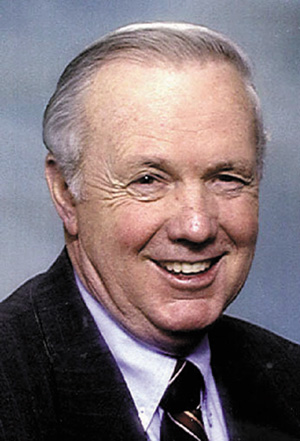No. 625 - THE HIGH PRICE OF GENERATIONAL POVERTY
No. 625
Jim Davidson -- NEWSPAPER COLUMN
THE HIGH PRICE OF GENERATIONAL POVERTY
My good friend Steve Nawojczyk, a noted authority on gangs in America, says there are five basic reasons why young people will join a gang. In varying degrees these are: helpless, hopeless, homeless, hungry and hug-less. When you think about it, this is really sad, but the reality is there are millions of young people in our country today who see themselves with no hope, who are homeless, who feel helpless, who are hungry, and seldom, if ever, receive a hug from those who should have love and concern for them. While the initiation and rules are harsh, the gang becomes their family, and in addition to these young people, society is really the loser.
While it’s a long-term solution, this is one of the reasons we feel so strongly about our “Bookcase for Every Child” project. When you can provide a young child with a personalized oak bookcase and some good children’s books, and then read to them each week, you are providing them hope and interaction with some people who really do care about them. This is a grass-roots project and is done with all volunteers, and we don’t use any tax money or government grants. A sense of deep satisfaction is our only payment.
The city of North Little Rock, Arkansas, sister city of our state capital, has recently started a bookcase project. Some time back I was invited to speak to their Youth Services Advisory Council. After the meeting, a lady in attendance told me about a book titled “A Framework for Understanding Poverty” by Ruby K. Payne, Ph.D. I ordered this book the following day, and it has given me more insights into the lives of these young children who come from low-income homes than anything I have ever read before. This book was so interesting and informative that I have now read it twice, and I will refer to it many times over the coming months and years.
Dr. Payne is the leading U.S. expert on the mindsets of poverty, middle class and wealth. She is uniquely qualified because of her background as a school principal, coming from a middle-class background, marrying a man from situational poverty and serving as a principal in one of the most affluent neighborhoods in Chicago, Illinois.
It should be noted that there are two kinds of poverty: Generational poverty exists when an individual or family has lived in poverty for two or more generations. Situational poverty is more short-term and is brought about because of a change in circumstances such as the loss of a job, divorce, health issues or other issues that can be more quickly overcome.
What I have learned from Dr. Payne is that the children we are trying to help, who come from low-income families, don’t really have a chance to succeed unless they get help from others who are part of the middle class and wealthy members of our society. The reason is language.
There are five registers in every language. They are:
1. Frozen: A language that is always the same. For example: Lord’s Prayer, wedding vows, etc.
2. Formal: The standard sentence syntax and word choice of work and school. It has complete sentences and word choice.
3. Consultative: Formal register when used in conversation. Discourse pattern not quite as direct as formal register.
4. Casual: Language between friends and is characterized by a 400- to 800-word vocabulary. The word choice is general and not specific. Conversation dependent on non-verbal assists. The sentence syntax is often incomplete.
5. Intimate: Language between lovers or twins. It is also the language of sexual harassment.”
Here is the real rub. People who come from generational poverty always use casual and never use the formal register. This is why you can spot them in a conversation or in a job interview. Except in rare cases, children who grow up in homes of generational poverty never hear formal register used, which causes problems when they start to school. Formal language is the language of education, and is also what the ACT and SAT tests are written in.
Given this information, it’s easy to understand why these children struggle, and many become candidates for drop out, even before they can physically leave school. Education and school is their ticket to success, to leave generational poverty, and to have hope for a bright future. This is why our bookcase project can make a difference for many of these children.
“A Framework for Understanding Poverty” is a fantastic book and I have not even scratched the surface of the wealth and understanding that lie between the covers. If you are interested, you may order this book directly from Dr. Payne’s company. AHA! Process Inc., PO Box 727, Highlands, Texas, 77562, or www.ahaprocess.com.
---
(EDITOR'S NOTE: Jim Davidson is a public speaker and syndicated columnist. You may contact him at 2 Bentley Drive, Conway, AR 72034. To support literacy, buy his book: “Learning, Earning & Giving Back.”)
